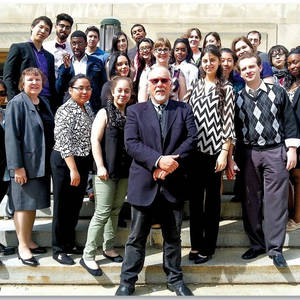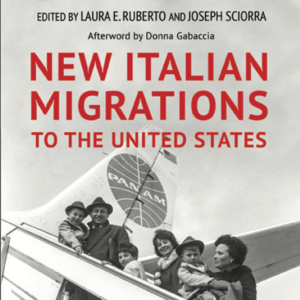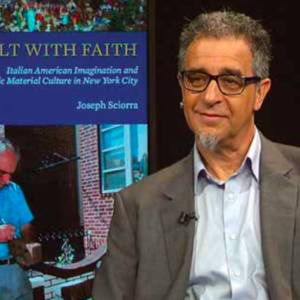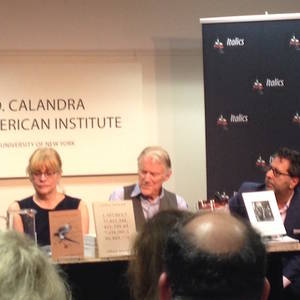Much of what I think about Piero Bassetti’s notion of Italici and the term’s relationship to his equally innovative notion of the Glocal, appears in my introduction to his new book "Let’s Wake Up Italics! Manifesto for a Glocal Future," published by Bordighera Press. What follows is what I feel about this interesting idea.
You chose: calandra institute
-
-
Italian immigration from 1945 to the present is an American phenomenon too little explored in our historical studies. Until now. In this new collection, Laura E. Ruberto and Joseph Sciorra edit essays by an elite roster of scholars in Italian American studies.
-
Through his engaging style, based on the best of ethnographic methods, Joseph Sciorra presents a study that reaches beyond the academic to inform and challenge us to see and react to this Italian American material culture in new ways
-
On Thursday, October 6th, the John D. Calandra Institute held a symposium about the forty years of Italian American Civil Service Employment in New York City and New York State.
-
What does the future hold for Italian-American writers? This is what seven Italian-American writers came to the John D. Calandra Institute on September 15th to discuss. A round table forum was held; writers Anthony Julian Tamburri, Fred Gardaphe, Robert Viscusi, Louisa Ermelino, Maria Lisella, Mark Ciabattari and Mark Rotella had the opportunity to discuss their books, sources of inspiration, experiences as Italian Americans, and what they feel the future will bring for the Italian-American community.
-
Inspired by his time as a visiting artist at the American Academy in Rome, Vincent Baldassano’s exhibition showcases the rich history and beautiful antiquity of this Italian city.
-
Welcome to the 39th annual celebration of Italian Heritage and Culture Month.This year the Board of Directors of the Italian Heritage and Culture Committee, New York, Inc. has selected as its theme: Italian Creativity: Celebrating 50 Years of Science and Technology; New York World’s Fair 1965 – Expo Milano 2015.
-
Afro-Italian filmmaker Fred Kuwornu explores the challenges of ethnic diversity in Italy.
-
There are those who read this expression as “See Naples and then die,” because once you’ve seenNaples there is no need to see anything else. Or, as the expression has also been interpreted, “See (the great/big city of) Naples and then (the small city of) Mori.” Nonetheless, whatever the phrase’s origin may be, let us just say that once you’ve seen Naples, you have surely seen it all.
-
Genaro Matino is launching a major cultural exchange project that he has been working on for years. Evocatively named “Naples in the World,” it will provide an innovative platform for talking about Naples—a city of solidarity and hope, rather different than the one stereotypically depicted in the media. And he has chosen New York as the site to lay the foundation for his project. In this exclusive interview Gennaro Matino discusses the details of his trip and his view for the future.







































